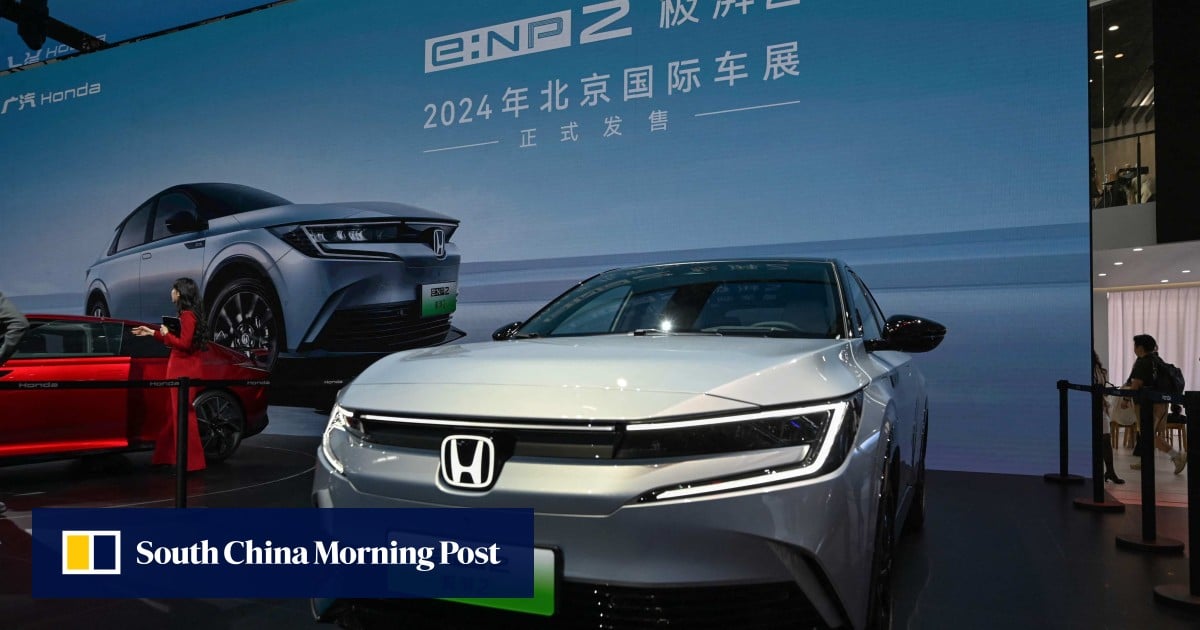


“Reliable and high-quality vehicles are supposed to give users a sense of safety.”
He said the venture between Honda and its Chinese state-owned partner Guangzhou Automobile Group viewed petrol and hybrid cars as growth engines just as important as EVs.
“We have a strong position [in China] due to our balanced set-up,” Ralf Brandsatter, VW’s China chief executive, told reporters at a media briefing on Monday.
Foreign carmakers have seen their dominant position in mainland China dwindle. Twenty years ago they held an 80 per cent share of the market, according to the China Association of Automobile Manufacturers, as they reaped the benefits of the rising affluence of local consumers.
It was the first time that Chinese car brands had surpassed their foreign rivals in their home market.
Wang Chuanfu, chairman and president of BYD, the world’s bestselling EV assembler that was narrowly beaten by VW in terms of mainland deliveries last year, recently predicted that the accelerating pace of electrification on the roads would erode the market share of foreign carmakers to just 10 per cent in the next three to five years.
New-energy vehicles – a term that captures fully electric and plug-in hybrid cars – will make up about half of new car sales in mainland China by 2030, as state incentives and an expanding network of charging stations win over more customers, Moody’s Investors Service said in a report released in early April.
“Electrification will be the trend, but it may not turn out to be as fast as some optimistic industry officials predict,” said Eric Han, a senior manager at Suolei, an advisory firm in Shanghai. “Petrol cars will still be an important segment even in the world’s largest EV market.”
Gao Huan, a Beijing-based sales manager for PSA Group that owns the Peugeot and Citroen brands, said conventional carmakers still have loyal customers who understand their history and vision.
“Companies like PSA will still be attractive to those customers and they will build cars for those who understand the brands,” he added.
Swiss bank UBS forecast last year that Chinese carmakers would control a third of the global market by 2030, nearly double the 17 per cent share they enjoyed in 2022, buoyed by the rising popularity of battery-powered vehicles.
“The key to remaining relevant in China will be first to fully embrace electrification, whether it be through partnerships or self-developed models,” said Stephen Dyer, Greater China co-leader and head of the Asia automotive practice at global consultancy AlixPartners.
“It will be critical to be able to keep their product portfolios fresh, by rapidly launching updates and facelifts for their models.”